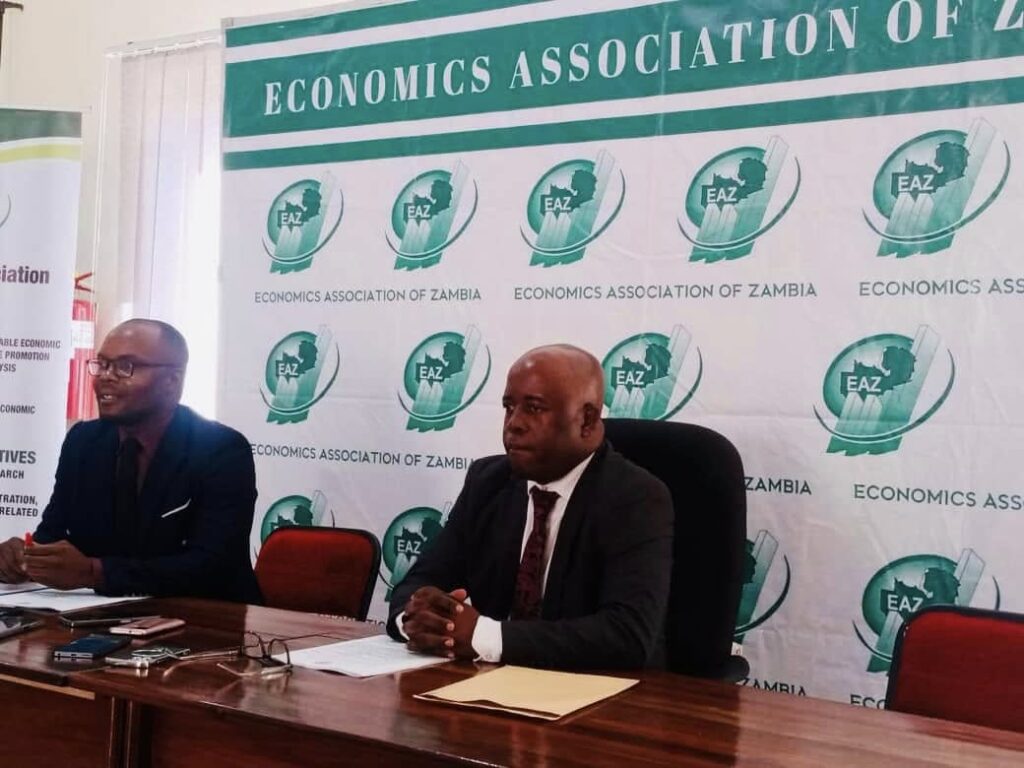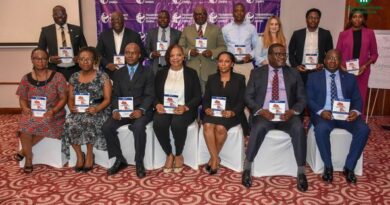EAZ Calls for Forex-Boosting Policies, Criticizes Tax Suspension
The Economic Association of Zambia (EAZ) has called on the government to prioritize measures that enhance foreign currency inflows, emphasizing export diversification, value addition, and strategic trade agreements to improve forex availability.
Speaking at a media briefing in Lusaka, EAZ President Dr. Oswald Mungule highlighted the country’s heavy reliance on foreign currencies for local transactions, which he said exacerbates exchange rate volatility.
He urged the government to implement a clear de-dollarization strategy that promotes the use of the kwacha in domestic trade, reduces informal forex transactions, and strengthens confidence in the local currency.
“Encouraging foreign direct investment (FDI) should be a priority. The government must enhance investment incentives and improve policy consistency to attract FDI, which can help stabilize forex supply and reduce dependence on external borrowing,” Dr. Mungule stated.
He further noted that Zambia is targeting a budget deficit of 3.1% of GDP in 2025, down from the 6.4% forecasted for 2024. Approximately 80% of the 2025 budget is expected to be financed through domestic revenues, with the remaining 20% sourced from grants and borrowing.
However, EAZ expressed concerns about the feasibility of this target, especially given the heavy reliance on U.S. aid in financing the social sector.
Dr. Mungule warned that the suspension of U.S. aid could disrupt government plans, necessitating expenditure realignments and potential additional borrowing, which could push the fiscal deficit higher.
The EAZ President also addressed the government’s reintroduction of a 15% export tax on emeralds, effective January 1, 2025, which had raised concerns among investors. Gemfields, a major player in Zambia’s gemstone industry, had requested the government to reconsider the tax, arguing that it could deter investment.
In response to stakeholder concerns, the government suspended the tax in February 2025 to enhance the competitiveness of local producers and attract investors.
Dr. Mungule criticized the suspension, arguing that investor confidence relies on a predictable and stable investment environment. “This decision does not inspire confidence. Government must understand that minerals are non-renewable; they are a wasted asset. Ensuring that the country derives maximum benefits from its natural resources should be a priority,” he emphasized.
He further stressed that the export tax was introduced to encourage value addition, which would lead to industrialization, job creation, increased domestic revenue mobilization, and overall economic growth.
“By suspending the export tax on precious metals and minerals, we are forgoing these benefits for our people and the country. We urge the government to revisit and, if possible, reverse this decision immediately,” Dr. Mungule stated.



